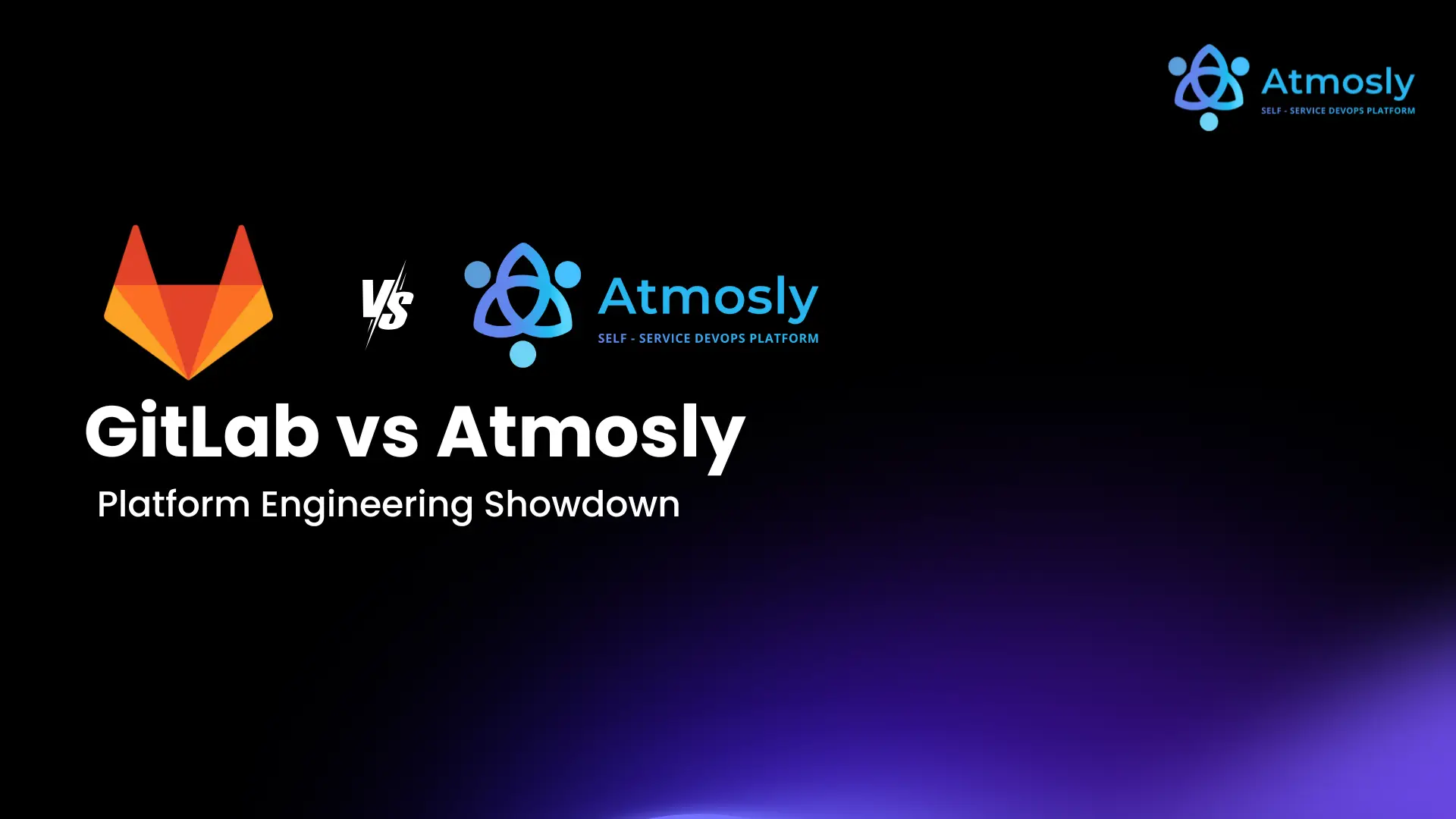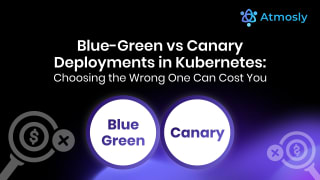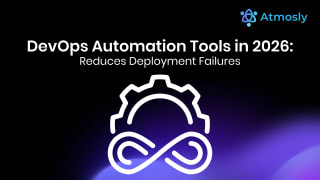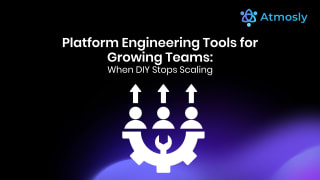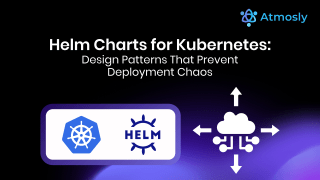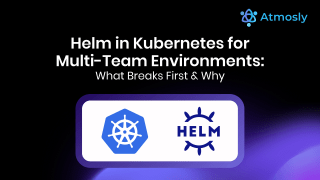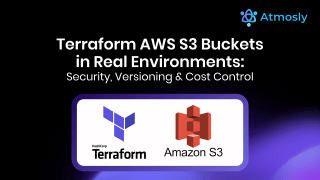GitLab is well-known for its all-in-one DevOps platform offering version control, CI/CD, and issue tracking under one roof. But as platform engineering becomes a dedicated function within DevOps teams, GitLab's monolithic structure is showing its limits.
Atmosly is a modern DevOps automation platform built specifically for platform engineering teams. It enables GitOps-native workflows, dynamic environments, and self-service tooling for developers all while ensuring control, security, and scalability.
If your organization is investing in an internal developer platform (IDP) or trying to shift from DevOps bottlenecks to enablement at scale, this GitLab vs Atmosly comparison will help you make the right decision.
Quick Comparison: Atmosly vs GitLab
| Feature | GitLab | Atmosly |
|---|---|---|
| Version Control | Built-in Git hosting | Integrates with GitLab, GitHub, Bitbucket |
| CI/CD Pipelines | Jenkins-style YAML with runners | GitOps-native workflows with rollback |
| Secrets Management | External integration (Vault, etc.) | Built-in with RBAC and audit logs |
| Environment Provisioning | Manual or scripted | Ephemeral & persistent environments |
| Platform Engineering Support | Limited | Purpose-built for IDPs |
| Developer Self-Service | Not core to GitLab | Core to Atmosly (via templates & UI) |
| GitOps Support | Available, not native | Native with drift detection |
| Learning Curve | Medium-high (multi-tool setup) | Low (centralized platform) |
| Governance & Audit | Basic | Policy-driven, secure by default |
Atmosly: Built for Modern Platform Engineering
Atmosly helps platform teams move beyond scripting and into structured enablement. Instead of managing dozens of pipelines and YAML files across services, Atmosly lets you define golden paths standardized, reusable workflows that empower developers without sacrificing control.
Key Benefits:
- GitOps-native CI/CD with rollback and approval gates
- Dynamic environment provisioning for every pull request
- Built-in secrets engine and access controls
- Golden path templates to simplify onboarding
- Designed for creating internal developer platforms (IDPs)
Why it matters:
As platform teams shift from “infrastructure operators” to “enablement architects,” tools like Atmosly become essential. They eliminate DevOps toil, reduce manual provisioning, and accelerate time-to-value for developers.
GitLab: Powerful but Monolithic
GitLab is a powerful DevOps suite, especially for teams looking for a centralized platform with version control and basic CI/CD baked in. However, it’s not purpose-built for platform engineering workflows and that leads to limitations when scaling.
Key Challenges:
- CI/CD is rigid and often relies on manual YAML scripting
- Environment provisioning requires external tools and maintenance
- Secrets management and GitOps support require third-party add-ons
- Not designed with developer self-service or golden paths in mind
GitLab works well as a general-purpose DevOps tool, but it lacks the specialization needed to support platform teams building IDPs.
Developer Experience & Automation
| Area | GitLab | Atmosly |
|---|---|---|
| Pipeline Creation | YAML-heavy, error-prone | UI + GitOps templates |
| Environment Provisioning | Scripted, slow | Instant, on-demand environments |
| Secrets Management | Requires Vault/3rd-party plugins | Built-in, policy-driven |
| Self-Service Tools | Manual setup | Ready-to-use templates & UI |
| GitOps Flow | Available via config | Native, always-on |
Atmosly removes friction from the developer workflow by giving them secure self-service access to infrastructure, environments, and automation without waiting on the DevOps team.
Use Case Fit
| Scenario | Best Tool |
|---|---|
| All-in-one DevOps with code + CI/CD | GitLab |
| Platform engineering with reusable golden paths | Atmosly |
| Developer onboarding & environment provisioning | Atmosly |
| Compliance-heavy monorepo teams | GitLab |
| Building an internal developer platform (IDP) | Atmosly |
Final Verdict: GitLab or Atmosly?
If you need version control, issue tracking, and a basic CI/CD setup in one toolGitLab is a solid choice.
But if you're focused on building scalable platform infrastructure, enabling developer self-service, and creating golden paths across teams then Atmosly is the right platform engineering tool for 2025.
It’s secure, GitOps-native, scalable, and purpose-built to turn DevOps bottlenecks into platform-led acceleration.
Ready to Build a Developer Platform?
Atmosly gives you the infrastructure backbone to empower developers, standardize automation, and scale confidently across teams and services.
